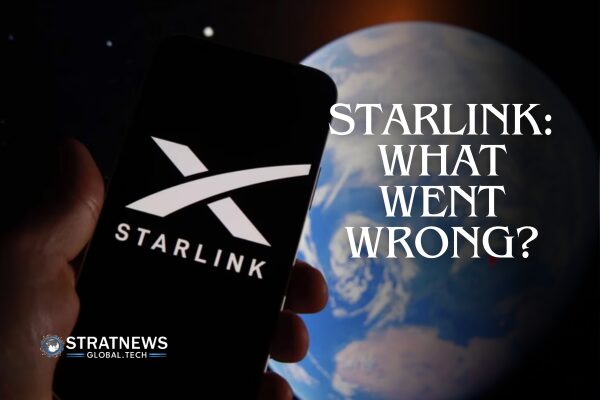SpaceX’s Starlink internet service experienced one of its largest international outages on Thursday, with users in the United States and Europe reporting widespread disruptions. The failure, caused by an internal software glitch, left tens of thousands offline for over two hours—a rare setback for a system known for its resilience.
Over 60,000 Users Affected
The outage began around 3 p.m. EDT (1900 GMT), according to Downdetector, which recorded more than 61,000 user reports. Customers across both the U.S. and Europe were affected, and the disruption appeared to be global in nature.
Starlink acknowledged the issue via its official X (formerly Twitter) account and confirmed that engineers were working on a solution. Service resumed approximately 2.5 hours later.
Michael Nicolls, Vice President of Starlink Engineering, stated, “The outage was due to failure of key internal software services that operate the core network,” and apologised for the disruption.
Musk Responds, Promises Fix
Elon Musk, CEO of SpaceX, also issued an apology on X: “Sorry for the outage. SpaceX will remedy root cause to ensure it doesn’t happen again.”
While Starlink has had minor disruptions before, this event marked the longest and most widespread outage since it became a major global service provider. Experts speculated about whether the cause was a software glitch, a faulty update, or potentially even a cyberattack.
Analysts Suggest Cybersecurity Concerns
Doug Madory of Kentik, a firm that monitors internet activity, said: “This is likely the longest outage ever for Starlink, at least while it became a major service provider.”
Gregory Falco, cybersecurity expert at Cornell University, suggested it may resemble last year’s CrowdStrike update failure that caused chaos for Windows users globally: “I’d speculate this is a bad software update, not entirely dissimilar to the CrowdStrike mess… or a cyberattack.”
A High-Stakes Network
With more than 6 million users across 140 countries, Starlink is SpaceX’s most commercially sensitive business. The network is composed of over 8,000 satellites in low-Earth orbit, enabling high-speed internet in remote and underserved regions.
Beyond consumers, Starlink’s services are increasingly vital to militaries, transportation firms, and governments. Its Starshield division, focused on defence and intelligence, holds multi-billion-dollar contracts with the Pentagon.
It remains unclear whether Starshield or other government-linked services were affected by Thursday’s failure.
Growing Ambitions, Higher Stakes
Starlink is actively expanding, including a partnership with T-Mobile to provide direct-to-cell text messaging. These upgrades require continual updates and expansions to the satellite constellation—a process that brings complexity and, as shown, risk.
With the stakes this high, ensuring stability is more important than ever for SpaceX. Thursday’s blackout has raised new questions about the robustness of satellite networks in an era of increasing reliance and geopolitical sensitivity.
(with inputs from Reuters)


